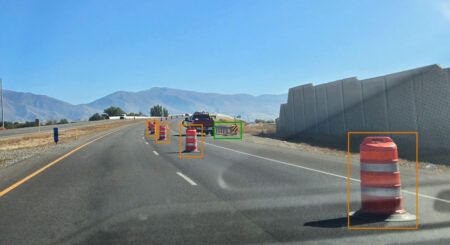A partnership between the New Jersey Department of Transportation (NJDOT) and the NJ Department of Environmental Protection will fund three new air-quality enhancement projects targeting mobile sources of pollutants.
The two agencies are working with regional transportation planning agencies to use US$9.5m in funding from the US Department of Transportation (USDOT) to establish grant programs that will add electric vehicle (EV) charging stations across the state, provide electric power for trucks that require climate control, and provide cleaner engines for ferries. The projects will reduce pollutants that contribute to the creation of ozone-smog, as well as particulate matter, with the cumulative effect of the projects estimated at reducing pollutants by 167 tons annually; the equivalent of removing 45,000 cars and 1,300 tractor-trailers from the roads.
New Jersey’s Metropolitan Planning Organizations (MPO) worked to solicit projects for the USDOT-funded Congestion Mitigation and Air Quality Program (CMAQ), which advances readily-implementable projects that improve air quality. The North Jersey Transportation Planning Authority (NJTPA) and South Jersey Transportation Planning Organization (SJTPO) have partnered with the state in developing these projects:
Following the joint NJ Board of Public Utilities and DEP’s ‘It Pay$ to Plug In’ EV program that resulted in 180 new workplace charging stations, the additional CMAQ funding could see up to 500 additional chargers; A scheme that will reduce diesel emissions from trucks that need to keep refrigerated goods at the proper temperature while loading and unloading shipments, by allowing them to plug in and keep goods cool, reducing ozone precursors by 51 tons annually and particulates by 12 tons; The Marine Repower Program builds on past DEP successes in reducing emissions from passenger ferries by funding additional engine refits for the Seastreak, Spirit Cruises, and Truex ferry lines, which could see significant long-term emission benefits, as well as fuel savings for operators.
“Cars and light trucks account for about 30% of ozone-forming precursors in New Jersey’s air and ground-level ozone, known commonly as smog, and is our most persistent health-related air pollution problem,” said DEP Commissioner, Bob Martin. “It is critical that we focus on reducing emissions from transportation to protect public health.”
NJDOT Commissioner, Richard T Hammer, commented, “We use the latest technology to keep traffic moving and reduce congestion on state highways, which helps improve air quality. These grants promote the use of clean technology in cars, trucks and boats, which will continue New Jersey’s efforts to be a leader in both transportation and the environment.”




